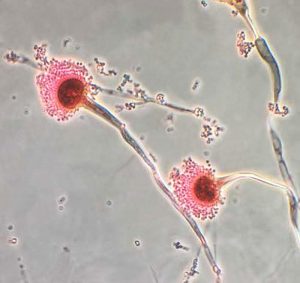Seattle Children’s Hospital shut down several operating rooms recently after routine air testing demonstrated the mold, Aspergillus was found in some of our operating rooms and equipment storage rooms at the main hospital campus.

If Aspergillus is present in an operating room, there is a small chance it could cause a surgical site infection.
The vast majority of patients are not at risk for surgical site infections. Parents of children who had surgery at Seattle Children’s main hospital campus since January 20, 2019 will receive a letter with more information about the low risk of infection associated with Aspergillus.
Aspergillus in the News: Breast implants, brain abscess
Hospital officials note that if the procedure did not involve an incision of your skin, you are at no risk of infection.
After receiving the letter, you may have additional questions. If you have a post-operation appointment scheduled with your surgeon, they will assess for signs and symptoms of infection at that time. Symptoms for any surgical site infection may include redness, swelling or drainage at the surgical site, or fever. If you had neurosurgery, you also will want to watch for fever, headache or stiff neck. If you notice any of these, call the clinic that did your surgery right away.
If you have not yet had a follow-up appointment or phone call and you have concerns, talk with your surgeon at that appointment or call the clinic that did your surgery.
- Medical history: Vaccines and Immunity
- Singapore: 4th dengue fatality reported, Monkeypox quarantine over
- Huntington’s disease: Searching for the origins of the depressive symptoms
- Antibiotics prescribed by dentists unnecessary eight out of 10 times: Study
- Honduras dengue epidemic tops 8,000
- University of Florida reports mumps outbreak
- African swine fever strikes North Korea farm
- Measles: Cases top modern record, Chicago launches measles vaccine finder

